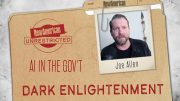When FCC Chairman Tom Wheeler launched the opening salvo in the battle to regulate the Internet, he said time and time again that Net Neutrality would not be used to regulate rates. Now he is arguing that restricting the FCC from regulating Internet rates will kill Net Neutrality. Brace yourselves: Rate regulation is coming, and Net Neutrality and those who supported it are to blame.
In February 2015, Wheeler wrote an op-ed piece for Wired that laid out his strategy to “ensure net neutrality” by treating the Internet as a public utility and applying the same types of regulations that are used for phone and electric companies. He wrote that his plan would “modernize Title II, tailoring it for the 21st century” and that there would be a light touch to FCC regulation of the Internet. “For example, there will be no rate regulation, no tariffs, no last-mile unbundling,” according to Wheeler then.
The New American reported at the time that Commissioner Ajit Pai was telling a different story concerning Wheeler’s Net Neutrality. After studying the 332 pages of rules — which were kept secret at the time — Pai tweeted, “Here is President Obama’s 332-page plan to regulate the Internet. I wish the public could see what’s inside.” Pai issued a press release listing — point by point — his reasons for voting against Net Neutrality. As this writer said then:
Any one of his six major objections to FCC regulation of the Internet is damning all on its own; when seen in toto, they are frightening indeed. Pai says he has studied the document “in detail” and determined that it is worse than he thought. For example, he says that regulation will include rate regulation, rules that stifle competition and innovation, tax hikes on broadband services, provisions that morph the FCC into a sort of “Department of the Internet” with authority to “micromanage the Internet,” and future utility-style regulations. In other words, this is the beginning of a complete government takeover of the Internet.
But Wheeler and others pushing Net Neutrality continued to assure the public that “there will be no rate regulation.” As TechPolicyDaily reported in March 2015:
But there is one issue about which Chairman Tom Wheeler has been crystal-clear since announcing his support for reclassification: the commission will not engage in broadband rate regulation. In his landmark Wired op-ed announcing his plan to put reclassification to a vote, he insisted that “there will be no rate regulation,” a promise he repeated in a fiery speech a few days later at the Silicon Flatirons Center. Three times in the span of 1600 words, the FCC fact sheet on net neutrality promised that whatever else it contains, “the Order makes clear that broadband providers shall not be subject” to rate regulation, the “proposed order does not include utility-style rate regulation,” and there will be “[n]o rate regulation or tariffs.” And as she cast her vote, Commissioner Clyburn took umbrage at the suggestion that the commission would use its new-found classification authority to regulate broadband rates.
The article was quick to point out that “these fervent protests cannot mask that Title II is fundamentally a regime for rate regulation.” Any person or organization opposed to Wheeler’s plan was accused of paranoia or worse. After all, Wheeler had made it clear: Internet rate regulation was not on the table.
That was then; this is now.
Congressman Dan Kinzinger (R-Ill.) introduced the “No Rate Regulation of Internet Access Act” (H.R. 2666) to make certain that Wheeler and the other architects of Net Neutrality kept their promises not to regulate rates. One would expect Wheeler to ignore the bill, or — at most — to issue a statement that it was unnecessary since there are no plans to regulate rates. Instead, Wheeler testified before the House Communications and Technology Subcommittee that the bill would kill Net Neutrality and prevent the commission from enforcing the rules against blocking, throttling, and paid prioritization.
Ars Technica, playing the role of apologist for Net Neutrality, reported that Wheeler published a letter on the FCC website stating that the bill would threaten nearly every aspect of Net Neutrality:
Wheeler wouldn’t object to legislation that merely prevents traditional rate regulation from being imposed on ISPs, he wrote. But this bill “would introduce significant uncertainty into the Commission’s ability to enforce the three bright line rules that bar blocking, throttling, and paid prioritization rules, as well as our general conduct rule that would be applied to issues such as data caps and zero rating,” Wheeler wrote. “It would also cast doubt on the ability of the Commission to ensure that broadband providers receiving universal service subsidies do not overcharge their consumers. Finally, it would hamstring aspects of the Commission’s merger review process.”
What Ars Technica left unanswered is why forbidding something that Wheeler said would not happen in the first place would threaten anything other than his ability to break his promise and do it anyway.
The bill passed the House earlier this month and will still need to pass in the Senate. Even then, President Obama — who had directed Wheeler to press forward with Net Neutrality by reclassifying the Internet as a utility — has said he will veto the bill if it reaches his desk.
So even though there is little likelihood of the bill becoming law, it at least serves as notice that Net Neutrality was intended from the beginning to allow the FCC to set prices for Internet service. When that happens, it will be interesting to see Ars Technica and other Net Neutrality supporters try to spin the facts. Until then, the rest of us just need to prepeare ourselves to pay more for less.
Big Government strikes again.





